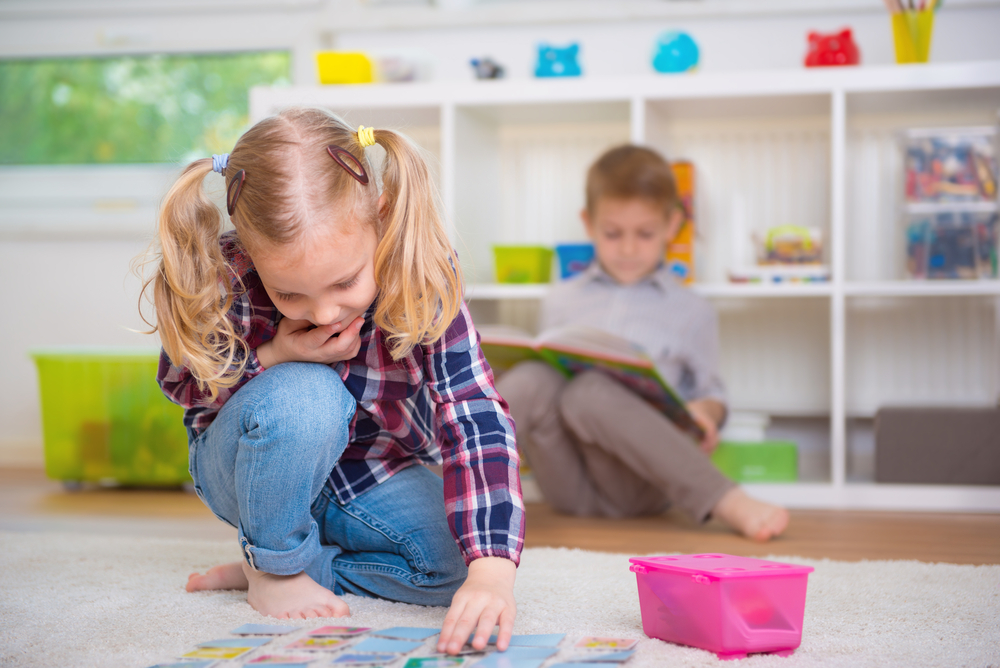Reading readiness Normal Worksheets for Ages 4-7
6 filtered results
-
From - To
Prepare your young learners for reading success with our Reading Readiness Normal Worksheets designed for ages 4-7. These engaging worksheets help develop essential skills such as letter recognition, phonemic awareness, and vocabulary building. Our carefully crafted activities provide a fun and interactive way for children to practice identifying sounds, letters, and words, fostering a love for reading from an early age. Perfect for parents and educators, these worksheets are easily printable and adaptable, making learning accessible anywhere. Equip your child with the tools they need to become confident readers and encourage a lifelong passion for literacy with our comprehensive resources.
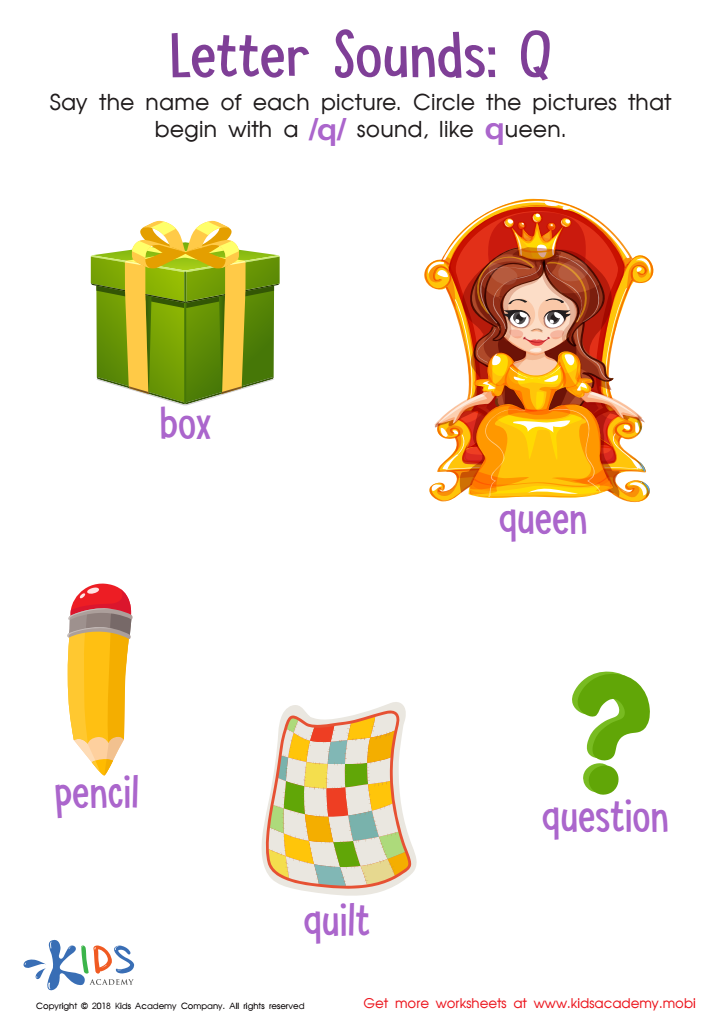

Letter Q Sounds Worksheet
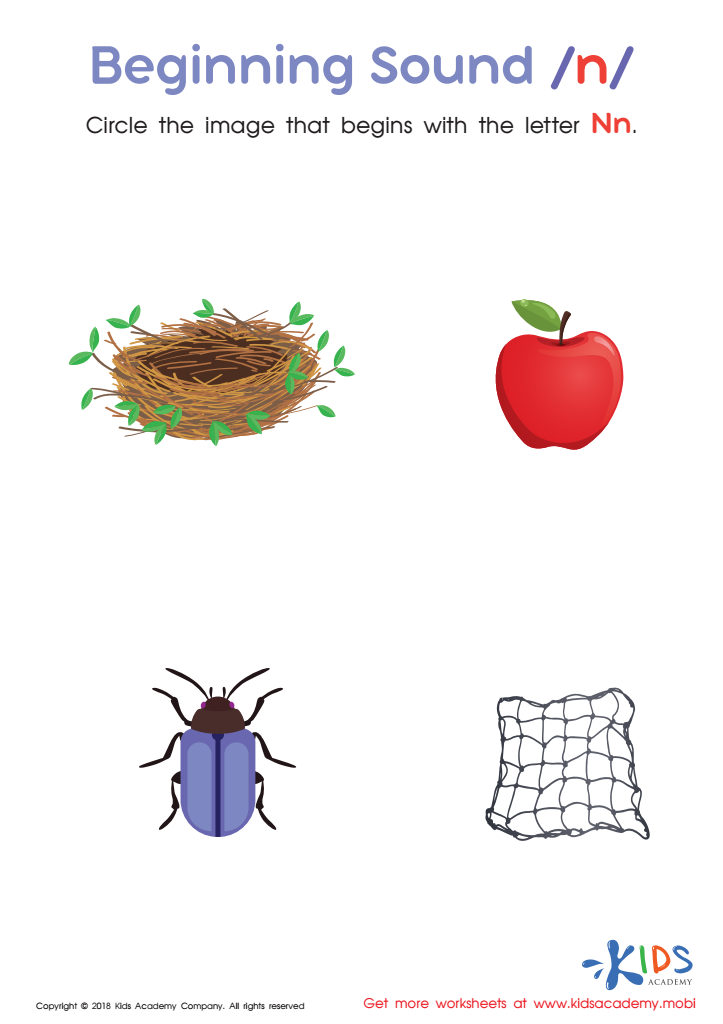

Beginning Sound «n» Worksheet
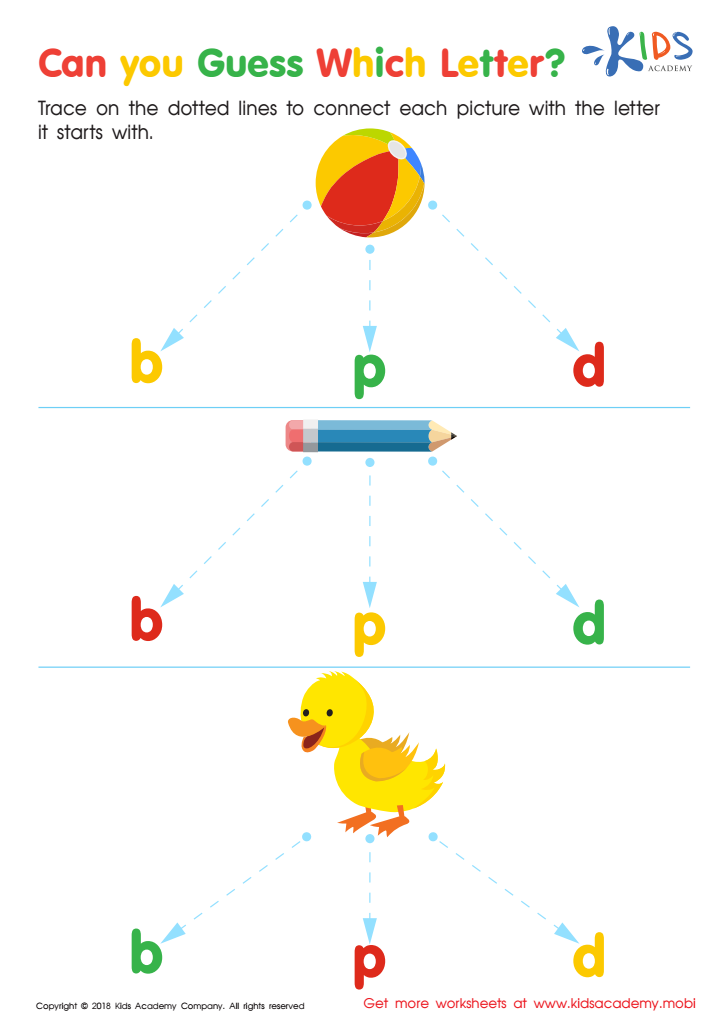

Can you Guess Which Letter? Worksheet


Phonological Awareness: Assessment 1 Worksheet
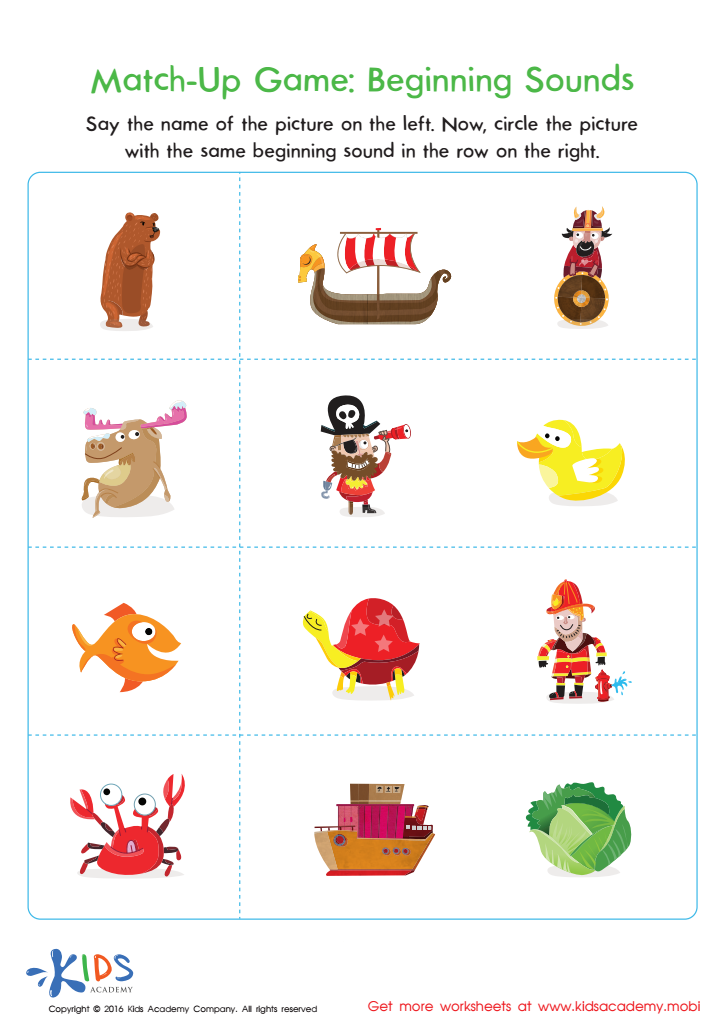

Match–Up Game: Beginning Sounds Worksheet
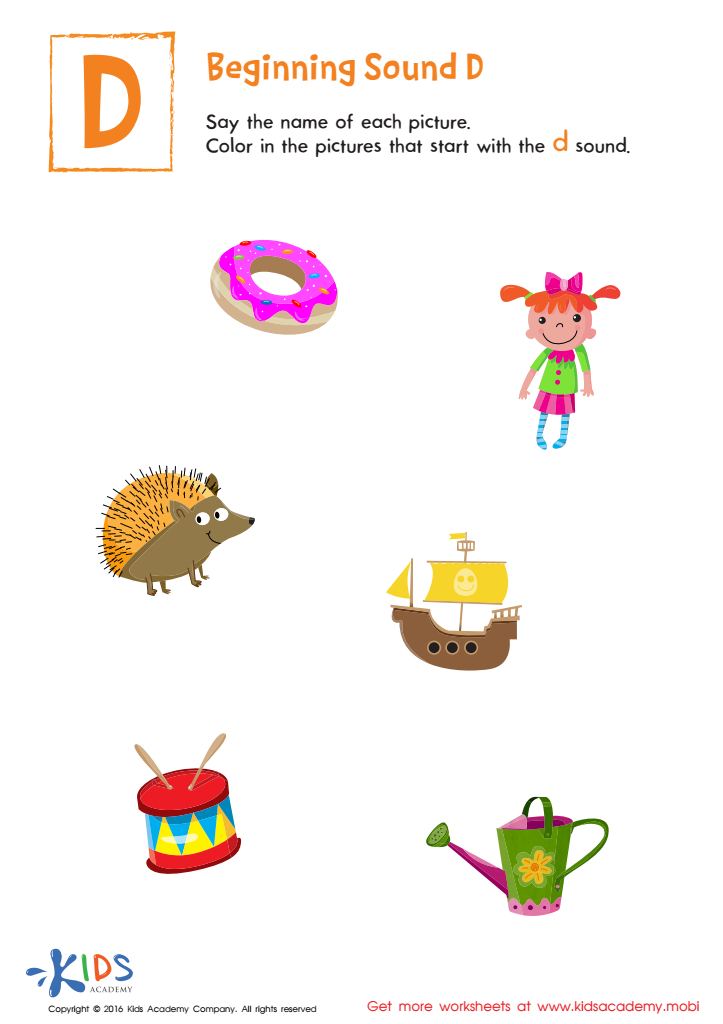

Beginning Sound D Worksheet
Reading readiness is crucial for children ages 4-7 because it lays the foundation for lifelong learning and academic success. At this stage, children begin to develop essential pre-reading skills, including phonemic awareness, vocabulary, and comprehension. These skills are instrumental in preparing them to decipher written text and understand its meaning.
Parents and teachers should care about reading readiness as it fosters a child’s curiosity and love for learning. Engaging children in reading-related activities enhances cognitive development, boosts self-confidence, and encourages critical thinking. Moreover, research indicates that early readers are more likely to excel in school later, significantly affecting their academic trajectory.
Supporting reading readiness also helps identify potential learning challenges early on. By addressing these issues promptly with tailored interventions or resources, parents and teachers can ensure that every child has the opportunity to succeed.
In addition, reading together strengthens the bond between adults and children, promoting communication and social skills. Ultimately, prioritizing reading readiness not only benefits individual learners but also contributes to a more literate and informed society. By focusing on this critical development stage, parents and teachers can empower children to embark on a fulfilling educational journey.
 Assign to My Students
Assign to My Students


.jpg)



